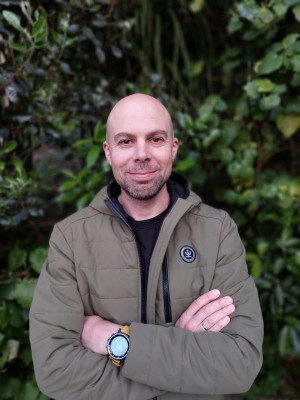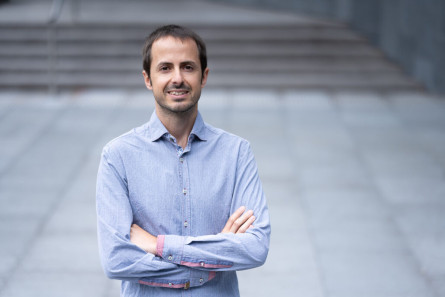Published Oct 23, 2024

Dr Bart Ludbrook
Dr Bart Ludbrook is a senior scientist at the Robinson Research Institute, where he is making sensors for a range of new clean, green industries, from fusion energy to sustainable air travel. With Wellington UniVentures' support, Bart recently joined the KiwiNet Emerging Innovator programme to propel his science out of the laboratory into real-world applications.
If you’re reading this, chances are you’re using an internet connection that relies on fibre optics: thin strands of plastic or glass that carry data as light, making it possible to transmit information super-fast over long distances.
But the application of fibre optics that Dr Bart Ludbrook and his team at Robinson Research Institute (RRI) are most excited about is sensors.
“Optical fibres make excellent sensors, because they are small and light, and very sensitive to changes in their environment, which they transmit as signals of light,” explains Bart.
What’s more, optical fibres don’t lose their sensing abilities in extreme conditions. This makes them especially useful in fast-growing fields like fusion energy, sustainable aviation and space exploration, which rely increasingly on superconducting machines.
“These incredibly efficient, powerful machines operate in extreme environments, like cryogenic temperatures and huge magnetic fields” says Bart.
It’s no coincidence that Bart works out of RRI, a world-renowned institute specialising in superconducting materials.
“Fibre sensors are an important piece of the puzzle toward a superconductive future. We’ve successfully proven that these sensors can detect and prevent critical failures in superconducting material in fusion energy and superconducting aviation, and we’re exploring new uses like cryogenic fuels for aerospace.”
Bart, who gained a PhD in Physics from the University of British Columbia, is no stranger to designing cutting-edge technologies. Before joining RRI, he worked in R&D for New Zealand’s defence and national security sectors.
At RRI, he’s been working with Wellington UniVentures, which supports commercialisation for technology coming out of the Institute, to propel his project out of the laboratory into real-world application.
His Commercialisation Manager at Wellington UniVentures, Dr Albert Antolin-Fontes, recognised an aptitude for commercialisation in Bart, and nominated him for KiwiNet’s Emerging Innovator (EI) programme.
“Bart has huge technical expertise, and a real desire to change the world with his technology. I was pleased to nominate Bart for the EI programme and am excited to see him put his new skills to use,” says Albert.
Bart is ready for this next phase of his science career. He says, “I’ve spent the first half of my career doing research spanning fundamental condensed matter physics, superconductivity and optical engineering. The EI programme will help me build the skills and network - and hopefully a bit of inspiration - for what I want to do next: take our research out of the lab and build useful things to assist the transition to a low-carbon global economy.”
Get in touch with us to find out more:

